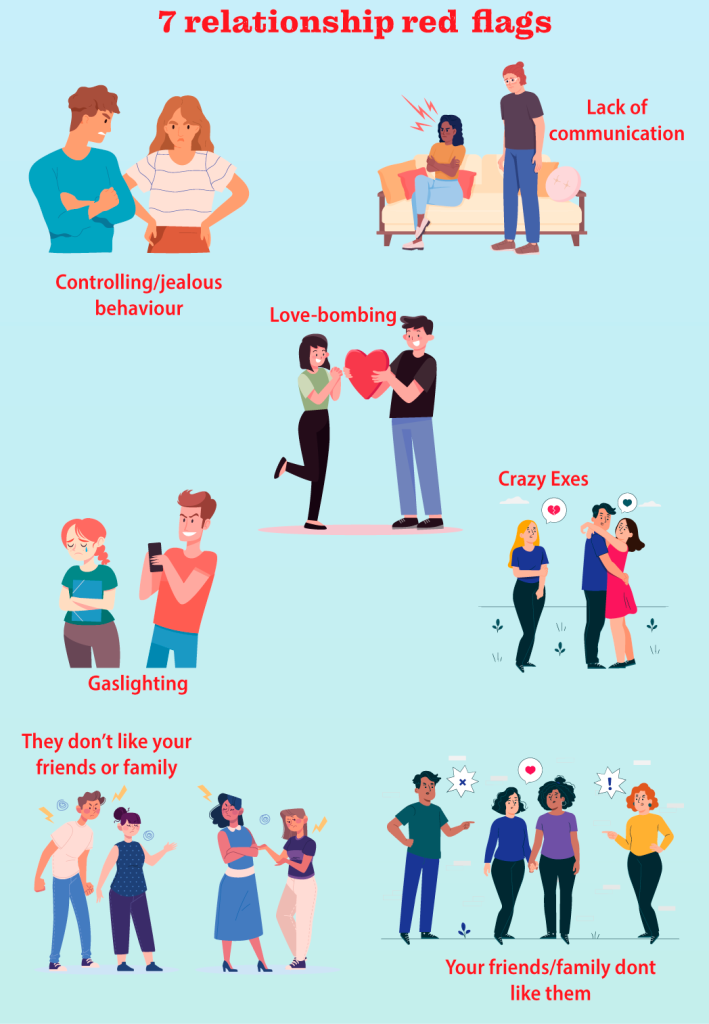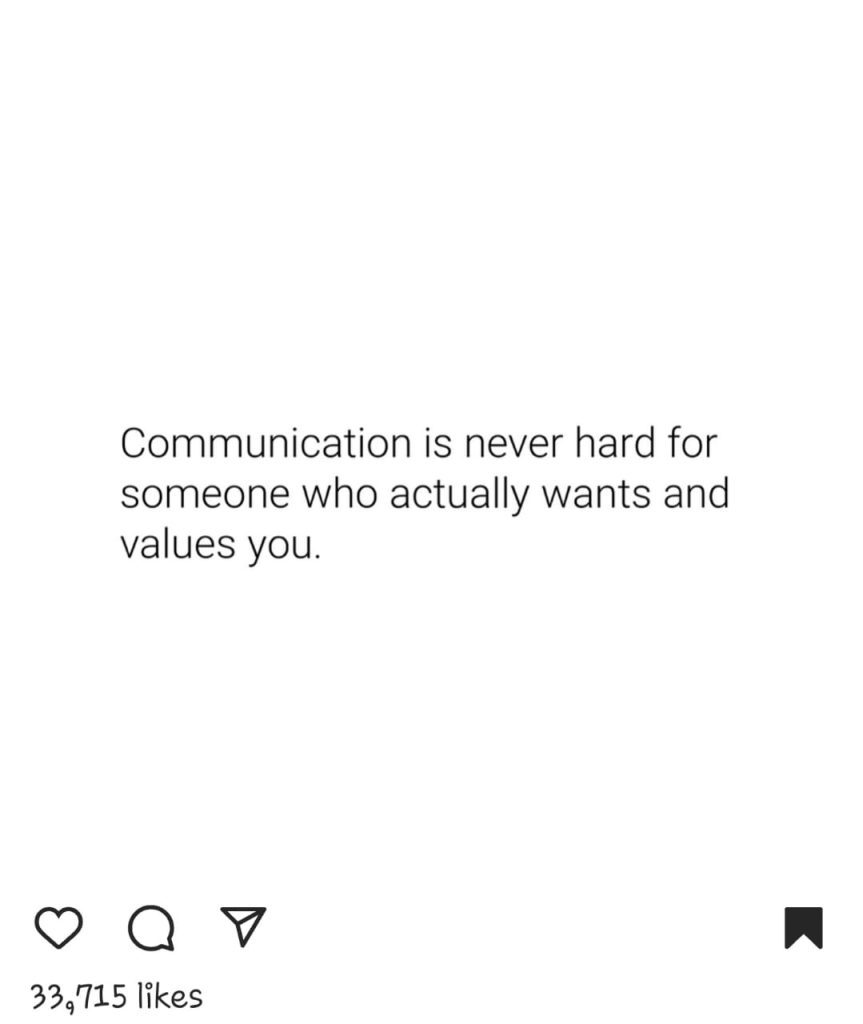Many “Red flags” are pushed by social media in a way that sets impossible expectations for newly budding relationships. Today’s prompt (on red flag traits), while innocent, opens a pandora’s box of misunderstandings in new relationships.
Recognizing red flags is crucial, but it’s equally important to step back and assess the impact of these heightened standards. Let’s pause, reflect, and explore how social media’s portrayal of red flags might be affecting us more deeply than we realize.
The following “Red Flag” Myths are seen almost everywhere on the internet and sets new forming relationships up for failure. (Find linked resources for further insight)
The “Red Flags” Myths
Everyone should be aware of their personal boundaries, however ensure that it is regardless of what is currently in fashion of a “red” or “green” flag. Don’t make the mistake to judge people too quicky, just because it’s trending.

1. The Perfect Partner is Never Needy.
Any statement defining the perfect partner, should be a red flag in itself. There is no definition to the perfect relationship. Like every individual, all relationships are unique.
That being said, the other problem with this myth of a red flag is; how it limits emotional vulnerability. Years of research have shown vulnerability to be a trait of the emotionally mature. By discouraging expressions of need, we risk stifling genuine emotional exchange and communication.
Generalizing and steering clear of all people who “love-bomb”, would be an irrational miscalculation.
2. Lack of Communication Means They Never Cared

Again, any statement stating a “never” should be read with a grain of salt. Is it advisable to prematurely end relationships because communication is “never hard”? For most people communication is the hardest feet, especially when it comes to emotions.
Effective communication is a skill that can be developed, not a static trait. The main danger of these kinds of supposed “red flags” is how quickly people give up on relationships.
It’s indeed simpler to give up on a relationship than to learn to communicate and be heard in one. It is also much much more difficult to find a partner who never has any issues communicating.
3. Controlling Behavior Means Future Gaslighting By Narcists

While this can be true in some cases and controlling behavior can be a red flag, throwing the words “Gaslighting” and “Narcists” in to the loop is a current trend. Automatically associating controlling behavior with gaslighting and narcissism oversimplifies many behavioral complexities.
There are so many reasons for the deep need for control, most of which actually branch from having gone through narcistic abuse.
By no means should you condone controlling behavior, however understanding where it comes from is important. It is important for determining your own boundaries and adaptability, and also to find closure with certain toxic relationships.
Couples tend to start off with this expectation that anyone who is controlling is a red flag. Instead of communicating this to better understand and express what is happening they quickly draw a conclusion and call it quits, leaving their partner potentially scarred.
Deciding to leave and not work with someone with this issue (or any issue) is entirely your decision but be sure that it is truly your decision and not because you pooled a general conclusion based on misinformation.
4. If Their Ex, Your Family and Friends Don’t Like Them = Red Flag

While insights from friends and family about your partner can be valuable, they should not be the sole basis for your relationship decisions. The only thing that you should seriously be observing and that should make a difference is how you feel around them and how much you like them.
While it is an interesting intel in the minds of your partner, understanding the dynamics of their previous relationships, it is a poor gauge to who they are with you.
Your family and friends have their personal expectations and boundaries, which may not align to yours, hence should not influence yours. If you choose to leave a relationship only because your family, friends and their ex does not like them, chances are you have trust issues.
There are multitudes of things to consider when choosing a partner, don’t complicate it further by needing an approval from all of the people in his and your life. Base your decisions on evaluating their interactions with you, as people are different with different people and at different stages of their lives.
5. Gender Based Flags

Some phony, gender based, red-flag examples:
- Her body count is higher than mine
- He did not pay for the date
- She wears revealing clothes
- He does not reply fast enough
- She always looks good must be high maintenance
- He has too many or too few friends
These types of “red flags” are extremely dangerous.
A good example is when women play awful pranks on their boyfriends or husbands and even slap them on videos as jokes. The “green flag” behavior of the partner is to laugh and play along with her, however the actual red flag conduct in the scenario is entirely overlooked because of gender biases.
Gender myths are harmful and should be skeptically analyzed. Relationship do’s and don’ts are not gender dependent. Regardless of what role you take in the relationship; equal, submissive, dominant, the point is to feel safe, comfortable and happy.
Having a preset mentality makes the already scary idea of stepping in to a relationship more stressful and often makes communication even harder.
When traits are constantly judged as being red or green flags, we create an environment where authenticity gets repressed. We then encourage a world full of people masking to fit in to this shell that then inevitably eventually explodes.
There are so many supposed-red-flags out there that we can easily dismiss any potential love-interests that we may encounter. Remember to be patient and have realistic expectations, while understanding when to draw the line.
Self healing plays an important role in the journey to discovering yourself and your boundaries to find your balanced life partner.
Good Luck & Happy Dating!

Leave a Reply